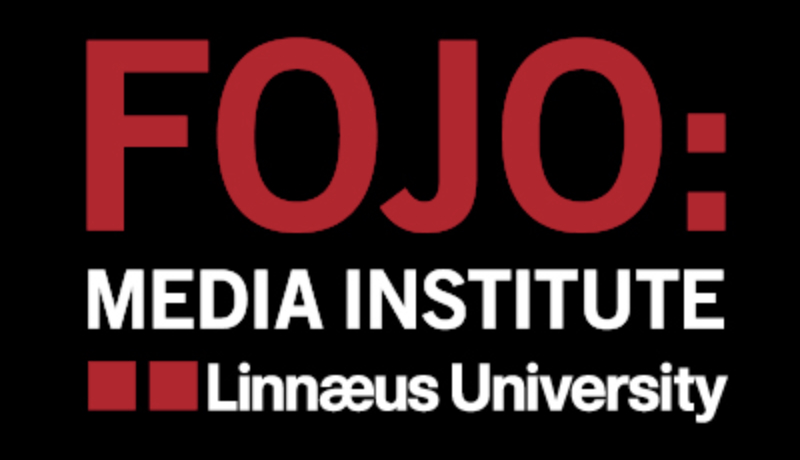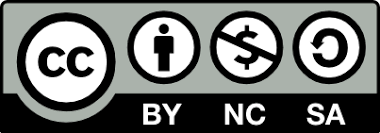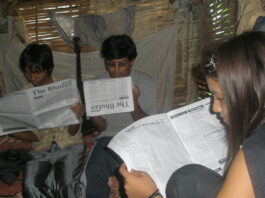
Media Helping Media is hosted by the Fojo Media Institute and is one of its official training resources.
From our BASIC JOURNALISM section
Interviewing for video journalists
How to enhance the quality of filmed interviews, including the use of lighting, avoiding distractions, calming nerves, and making the interviewee feel good.
Gender equality in the media
Women make up just 24% of those heard, read about or seen in news output. And only one in five experts interviewed by journalists are women.
From our EDITORIAL ETHICS section
Unconscious bias and its impact on journalism
Journalists must not allow their own personal or political views to influence their pursuit of the truth. They need to remain objective and impartial, while also being aware of the dangers that unconscious biases can cause.
Is your journalism ethical?
If the content you produce pushes an agenda, spins a line, favours a sector of society, is manipulated by subjective values, you are probably producing PR copy or even propaganda.
From our ADVANCED JOURNALISM section
Presenting and exploiting content online
One of the skills of news website management is knowing how to exploit each story in all relevant sections, so that it appears on multiple section indices.
Media guide for spotting election irregularities
In its Election Reporting Handbook for journalists the International Federation for Journalists (IFJ) sets out a list of what journalists should look out for when covering elections.
 Unfortunately, Facebook has decided to disable our Media Helping Media Facebook group. Our Facebook page is still live.
Unfortunately, Facebook has decided to disable our Media Helping Media Facebook group. Our Facebook page is still live.
 Do you have any wisdom to share with those without access to formal training? If so please get in touch.
Do you have any wisdom to share with those without access to formal training? If so please get in touch.
 Media Helping Media (MHM) provides free training resources for those starting off in journalism. Read more …
Media Helping Media (MHM) provides free training resources for those starting off in journalism. Read more …
 The content on Media Helping Media (MHM) is released via Creative Commons BY NC SA 4.0. Please read the MHM copyright terms.
The content on Media Helping Media (MHM) is released via Creative Commons BY NC SA 4.0. Please read the MHM copyright terms.
10 tips for investigating corruption
An investigative journalist has to plot the geometry of bribery, determine the currency of influence, document the paper trail, and deal with threats and retaliation when investigating corruption.
How to investigate official documents
The investigative journalist never takes things at face value. They probe and question in order to get to the truth. If you are to uncover the story you need to keep asking questions.
The mindset for investigative journalism
The investigative mindset is responsible for solving more information mysteries than probably any other factor. If you haven’t started writing down your best strategies now might be the time to start.
Convergence, workflows, roles and responsibilities
A converged newsroom operates like a content factory, responsible for all intake, production and output. It gathers and processes raw material, creates different products, and delivered them to the target audience.
Proactive journalism, ensuring issues are fully explored
Informing the public debate
Sometimes journalists become lazy. When this happens, the news they produce becomes superficial and shallow. They take information at face value....
Editorial considerations when a ‘big story’ breaks
When a big story breaks the following editorial considerations should be assessed.
The skills and techniques of media project management
What is needed to manage a successful media project from start to finish. The second training module in our series on project management.
Sustainable journalism in practice
Sustainable journalism in practice - how it affects newsrooms in terms of values, challenges, transparency and production.
Adapting to changing audience behaviour
The challenge of keeping up with changing audience behaviour and ensuring that the content that is produced is available on all the devices the audience uses to access information.
Testing boundaries – scenario
As one of the editors of a government radio news service in a developing democracy you receive information of an imminent threat of famine in a rural area of the country. But you fear that broadcasting the information could anger your employers. What do you do?
Transparency and full disclosure – scenario
Try our editorial scenario in which a radio reporter hears supposedly conflicting information during an organised media trip, and has to decide which material best represents the facts for their news broadcast.
Accuracy – scenario
Scenario: There has been a strike at a steel works. The union claims all its 100,000 members were out on strike, but the employer says 50% turned up for work and defied the picket line. You were reporting from the main gates of the steel plant all day and you didn't see anyone crossing the picket line. What do you report?
How to design a successful media training plan
A well-designed media training plan could make the difference between the success and the failure of a media business. Get it wrong and you could be adding to the problems you were asked to address.
12 tips for international media trainers
Those invited to help the media overseas need to ensure that the training they offer is continually refreshed so that it's up-to-date and sensitive to local issues and better addresses local needs.
Wanted, your media know-how
Are you a journalist, media manager or media trainer with some tips to share for the benefit of others? If so, please consider submitting a training module to Media Helping Media.




